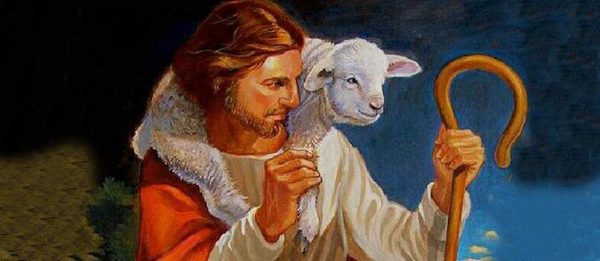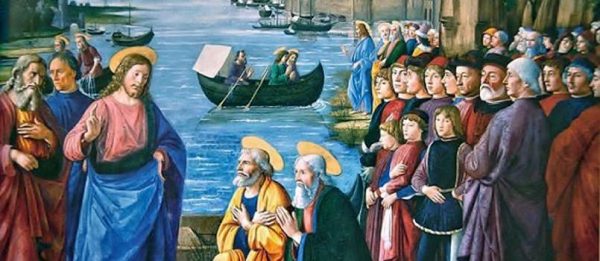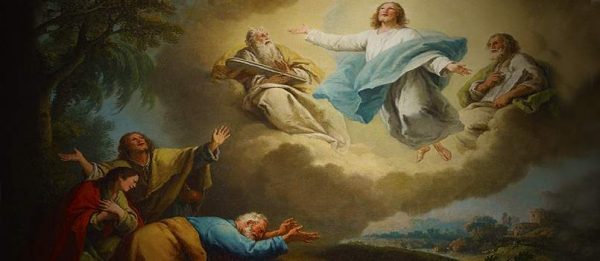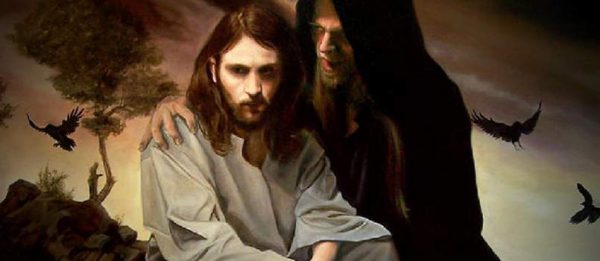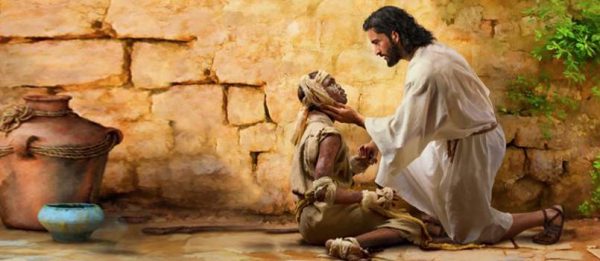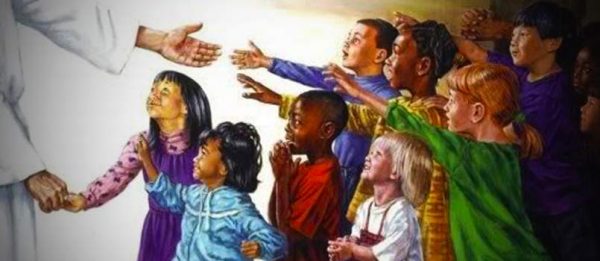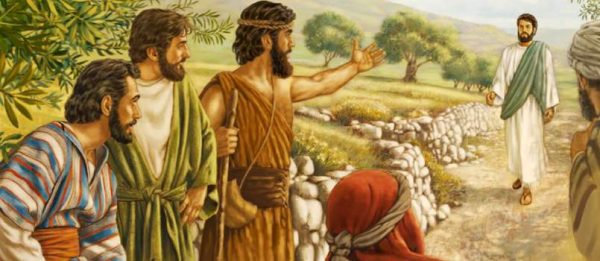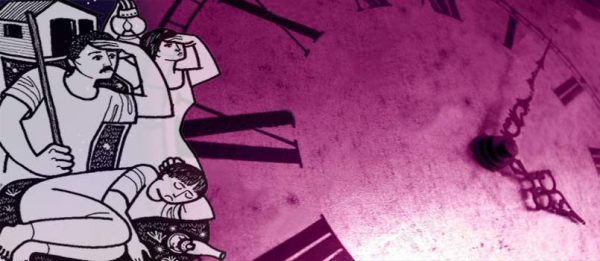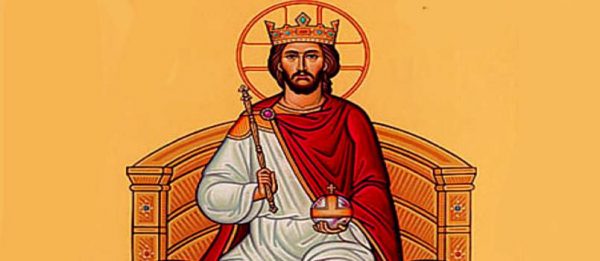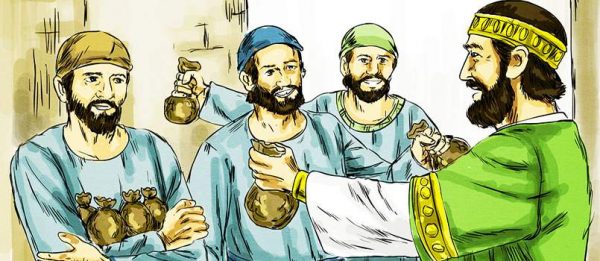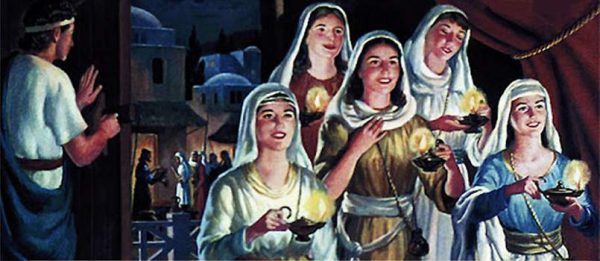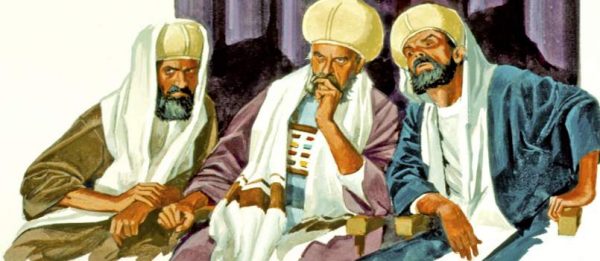1,028 total views
The Lord Is My Chef Sunday Recipe, Wk. XXVIII-C, 09 October 2016
2Kings 5:14-17//2Timothy 2:8-13//Luke 17:11-19
Our journey to Jerusalem continues with St. Luke as our guide. Last week, during a brief pause in the journey, he narrated to us the request of the apostles to Jesus to increase their faith. In our reflection, we said faith like other spiritual gifts cannot and need not be quantified because they are meant to be lived out; hence, the need to grow in faith in Jesus. In our Gospel today which is a continuation from last Sunday and supported by the first reading from 2 Kings, we find that growing in faith means being grateful to God for all the gifts He showers us in spite of our unworthiness. Notice that the two lepers healed today in our readings were all considered as outcasts and enemies of Israel during that time: Naaman who was a pagan and an officer of the Syrian army ordered by the prophet Elisha to bath in Jordan River and the Samaritan who was one of the ten lepers healed by Jesus. Such is the immense love of God for us all, regardless of our creed and color and situations in life. And too often, it is those who are marginalized and considered as outcasts that leprosy represents are the ones God is always looking for. That is also the meaning why St. Luke mentioned the location of Jesus somewhere in “Samaria and Galilee” because during that time, Jews living in that area were considered as sort of “less Jewish” by their orthodox fellow believers for they were not serious in their practice of Judaism like our “nominal” or “split-level” Christians today. But still, Jesus performed a miraculous healing in the region through the ten lepers because as St. Paul reminds us in the second reading, God cannot deny being good Himself: “If we are unfaithful he (Jesus Christ) remains faithful, for he cannot deny himself.” (2Tim.2:13)
Perhaps it is about time that we be grateful to God – and others! – for all the wonderful things we have received in life in spite of our unworthiness like Naaman and the Samaritan healed of their leprosy. But being grateful to God and to anyone is more than saying “thank you.” St. Luke is showing us in his story today that gratitude in fact is an expression of faith, a passing over or a pasch we all have to go through in order to mature in faith. Let us examine the actions of the Samaritan healed by Jesus to reflect on this beautiful virtue of gratitude that is becoming so rare these days.
“Jesus, Master! Have pity on us!” (Lk.17:12)
There is only other instance in St. Luke’s gospel where we find the Lord being called in His name as an expression of faith: the good thief on the cross who said, “Jesus, remember me in paradise.” (Lk.23:42) To call out His name Jesus in itself is already an expression of faith and a prayer. Likewise, the title “Master” in St. Luke’s gospel account has very strong meanings because he is the only Evangelist who used this word as a confession of the powers of Jesus Christ like when Peter addressed Him “Master” after the miraculous catch of fish in 5:5, in the transfiguration in 9:33, and when the Apostles begged for help while in a storm at the sea in 8:24. The united cry of “Jesus, Master!” by the ten lepers showed their profession of faith in the Lord. Too often in life, we have nothing else to say or cry when in deep pain and troubles except like the ten lepers, “Jesus, Master!” because we believe firmly that He alone can do something for us. It is the best prayer we can always utter as it encapsulates our faith in Him. And the Good News is that as we have seen in today’s Gospel, Jesus readily answers our cries to Him. Problem is with us, like the nine other lepers, when we rarely recognize God’s answer to our prayers. Only the Samaritan recognized the Lord’s answer to his prayer.
“And one of them, realizing he had been healed, returned, glorifying God inn a loud voice; and he fell at the feet of Jesus and thanked him. He was a Samaritan.” (Lk.17:15-16)
The actions by the Samaritan clearly show us how gratitude is an expression of faith and a process of passing over or pasch in itself. To call the name “Jesus” like the Samaritan and later the thief on the Cross is conversion, from a non-believer or a skeptic to being a believer. We rarely progress in our conversion and spiritual journey simply because of our ingratitude, and, maybe in life as a whole because when we are not grateful, we unconsciously tell those who gift us or help us that their goodness could only be wasted. Why? Because ungrateful people are so filled with pride that their egos are so bloated, feeling as if the world revolves around them and everybody else is obliged to pay them with respect; worse of all is when ungrateful people refuse to see or at least acknowledge the value of others that they don’t need them nor their help and aid! Grateful people like Naaman and the Samaritan always create a space in their hearts and in their very selves for more graces, for more goodwill and blessings because their gratitude means they are capable of receiving more abundantly!
The Samaritan returned, glorified God. How sad that with the many blessing we receive each day, especially those given to us without being asked for, so few people today seem to be going back to God at least to thank Him for His blessings. How sad that once we get what we wanted, whether from God or from others, we forget them and we are so consumed with what we have and ourselves. The word Eucharist is from the Greek word “eukaristia” meaning “thanksgiving”— that is why the Mass is the highest form of prayer.
The Samaritan fell at the feet of Jesus and thanked him. Archbishop Soc Villegas rightly noticed in his pastoral letter at the start of the “Year of the Eucharist and the Family” last year that we have become a “clapping generation” where everything is applauded or liked. We have forgotten to bend our knees to kneel. Gratitude is humility and a pasch because whenever we say thank you and bow or kneel, we admit our dependence on God and others. Problem today is that nobody would want to bow or kneel because we would rather flex our muscles to show our strength and power. There is only one peg these days and that is fame or popularity. Gratitude means shedding off our pride, admitting we need others, that somebody is better than us. Ungrateful people believe only in themselves. Let us start believing in God and others by being grateful. Thank you very much and God bless you!
“Lord Jesus Christ, as we return to You today in the Eucharist on bended knees and thanksgiving, raise us up like the Samaritan to go freely to love and serve others with the gifts You have given us. Amen.” Fr. Nicanor F. Lalog II, Parokya ni San Juan Apostol at Ebanghelista, Gov. F. Halili Ave., Bagbaguin, Sta. Maria, Bulacan.













